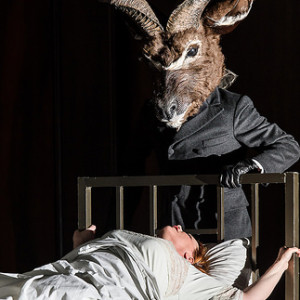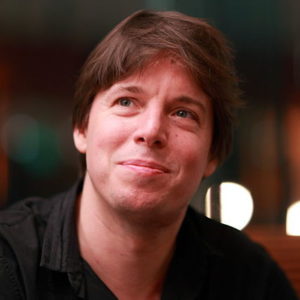Die Frau ohne Schatten, Royal Opera House
 Die Frau ohne Schatten is an opera awash with high-flown symbolism and dubious, if not downright dodgy, sub-Freudian psychology. It peddles ludicrous notions about the inherent conflict between spiritual and physical love, frowning at the sex that does not lead to results – i.e. procreation – and worst of all daring to suggest that a woman is somehow not whole unless a. she is fertile and b. has borne children. The words ‘pretentious’ and ‘tosh’ spring to mind. And yet, and yet, there is the music – beautiful and fantastical – somehow carrying the psychobabble into the realms of the mystical and persuading even sceptics like me that it’s worth switching one’s brain off for the better part of four hours.
Die Frau ohne Schatten is an opera awash with high-flown symbolism and dubious, if not downright dodgy, sub-Freudian psychology. It peddles ludicrous notions about the inherent conflict between spiritual and physical love, frowning at the sex that does not lead to results – i.e. procreation – and worst of all daring to suggest that a woman is somehow not whole unless a. she is fertile and b. has borne children. The words ‘pretentious’ and ‘tosh’ spring to mind. And yet, and yet, there is the music – beautiful and fantastical – somehow carrying the psychobabble into the realms of the mystical and persuading even sceptics like me that it’s worth switching one’s brain off for the better part of four hours.
From a staging point of view it’s a director’s worst nightmare, this piece, and the wisest of them tend to exploit the myth rather than the psychology, indulging that through the subterfuge of fairy-tale theatrics. Not Claus Guth. He takes it all on board – every last unpalatable detail – but cleverly has us see it all through the sick-bed delirium of the woman whose quest for fertility sets the whole monstrous confection in motion – the Empress. She is in love with (surprise) the Emperor whose transformation from hunter (sexual predator) to loving partner and potential father is played out in a fantasy in which she, a white gazelle, has been wounded (penetrated) by the Emperor’s spear (go figure) and taken to an infirmary where the nurse eschews medicine for the dark arts and facilitates the Empress’ quest for a shadow (fertility) in the world of men. And that’s where Barak and his Wife – a marriage in crisis – come in. Anna Russell couldn’t make this up.
Guth – in this co-production with La Scala – goes the whole nine yards for Strauss and Hofmannsthal laying out the psychological storyboard with painful clarity and an almost doggedly literal simplicity. Actors in animal masks keep the spirit world omnipresent and the dowdy veneer surfaces of Christian Schmidt’s clunky set – the Empress‘ sick-room, the Baraks‘ humble home – and Andi A. Müller’s rudimentary videos keep the transformative aspects of the piece firmly in a back-to-basics mode determined that the message (such as it is) should be delivered with a minimum of distraction. In a way it’s an excruciatingly honest production and the moment where Barak and his wife go to sleep in the chaste isolation of separate beds and Guth has the Empress caught between them in tearful empathy with both is undoubtedly moving. There are other such moments where simplicity and honesty is all and others where the whole conception descends into bathos. My prime distraction lay in wishing from start to finish that it didn’t look so dreary.
It didn’t sound dreary under Semyon Bychkov’s inspiring baton – far from it, the orchestral playing was glorious from start to finish – and I’ve no doubt that it was Guth’s intention never to compete or indeed to physicalise the fantastical splendour of the score but rather to focus instead on the core philosophy. But then again you could argue that there’s not much point in doing the opera if you don’t revel in its “special effects” and Guth’s staging was a massive let-down in that respect.
Casting-wise, Emily Magee (the Empress) fully justified Guth’s decision to make her the fulcrum of the entire production and central to its every scene – a watchful, thoughtful, feeling presence. It was a fine piece of acting and if, at times, Strauss’ voice-stretching demands got the better of her (the octave-plus plunge in the melodrama of the final act didn’t quite land) her conviction and shining top were pretty thrilling throughout.
So, too, Michaela Schuster’s malevolent Nurse (though her demise was one of the evening’s dramatic embarrassments) and Elena Pankratova as Barak’s Wife, though hers was what I would describe as a singer’s performance, slightly more preoccupied with her best notes than the reasons for them. Johan Reuter’s Barak dug a bit deeper and sang beautifully and Johan Botha (the Emperor) showed up, stood, and delivered.
Guth’s solution to the opera’s saccharin “and they all went forth and multiplied” denouement was either ironical or irredeemably toe-curling. The Empress finally confronts herself and becomes a “whole” woman, no more the wounded gazelle but now the mother of an abundant litter of fawns – cute children in animal masks who duly row the happy couples into the sunset leaving some of us wondering if the issue of birth control will ever rear its ugly head. Not in this universe.
Image: Emily Magee as the Empress in Die Frau ohne Schatten © ROH / Clive Barda 2014You May Also Like

A Conversation With JOSHUA BELL
02/09/2011
MUSICALS Podcast: Edward Seckerson meets SAMANTHA BARKS
21/04/2024